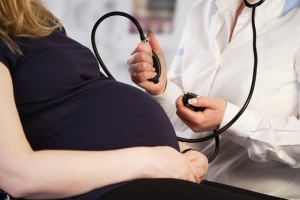Lose Weight > Common Sense To Lose Weight > Common Sense Article > Fluid And Sodium Restriction Pointless For Hospitalized Heart Failure Patients
Fluid And Sodium Restriction Pointless For Hospitalized Heart Failure Patients
A total of 75 patients hospitalized patients with ADHF participated in the study. Researchers assessed the effect that sodium and fluid restriction had on them.
Heart failure is a serious condition which occurs when the heart is not pumping blood around the body efficiently. The patient's right side, left side, or sometimes even both sides of the body can be affected. According to the American Heart Association's (AHA), the number of older patients hospitalized for heart failure in the US has more than doubled in the last 27 years.
The authors said that fluid and sodium restriction is commonly used as a nonpharmacologic means of treating ADHF. However, there is not substantial evidence to support it's therapeutic effect.
Graziella Badin Aliti, R.N., Sc.D., of the Hospital de Clìnicas de Porto Alegre, Brazil, and colleagues, commented: "We conclude that sodium and water restriction in patients admitted for ADHF are unnecessary."
The researchers compared the control group (with no dietary restrictions) to the intervention group - which restricted fluid intake to a maximum of 800 mL/d and sodium intake to a maximum intake of 800 mg/d.
The authors assessed weight loss and clinical stability at the three-day assessment as well as daily perception of thirst and hospital readmission within 30 days.
They found that overall weight loss was similar between the two groups at three days as well as any changes in clinical congestion score. Daily perception of thirst was higher in the intervention group. There was no big difference in the 30 day readmission rate between the two groups.
The study concluded:
"In summary, this RCT contributes to the field of HF [heart failure] research by showing that, in patients with ADHF, aggressive fluid and sodium restriction had no effect on weight loss or clinical stability compared with a diet with liberal fluid and sodium intakes. Furthermore, this aggressive intervention was associated with significantly higher rates of perceived thirst."
Written by Joseph Nordqvist
Related Articles
-
Manage Your Weight With These Tips And Tricks
Losing weight takes a while, but if you keep with it, you will s
-
SelfControl Equals Guaranteed Weight Loss
How does one best lose weight? Well, there are many different things t
-
3 Crucial Considerations When Designing the Lap Band Diet strategy
If you’re was just about to have the lap band procedure, then yo
-
Caveman Diet Weight Loss and Weight Maintenance
Losing weight and weight maintenance is a constant battle. The Pale
-
8 Steps to Losing Weight the Healthy Way
Approximately 105 million Americans were overweight or obese in 19
-
How to Turn Binge Eating into Healthy Eating?
If you want to turn your binge eating habit into a healthy eating h
- DON'T MISS
- Eat Healthy And Lose Weight Part 1
- I Lost Weight: I Made Slow Changes and Lost 100 Pounds
- Best Phentermine Alternative Diet Pills - Phen375 Reviews
- Water, The Easiest Way to Lose Body Fat
- Whats Your Body Mass Index
- Intermediate Fitness Program
- I Never Have Hunger Pangs. Here’s Why
- Weight Watchers now Helping Men Lose Weight
- Single-Incision Technique Available for Weight Loss Surgery
- Increasing Your Weight Loss Motivation




